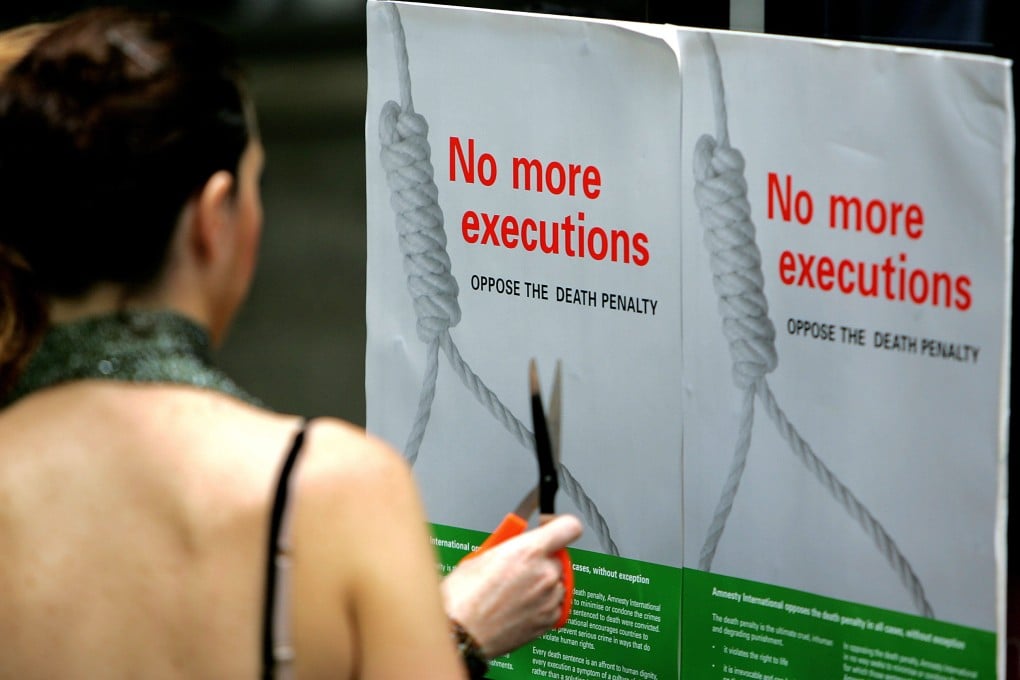Singapore hangs two more men amid continued outcry over capital punishment
- Malaysian Kalwant Singh and Singaporean Norasharee Gous were hanged on Thursday morning and their families have collected their death certificates and belongings, anti-death penalty activist Kirsten Han said
- Singapore has defended its tough stance on drugs and retention of the death penalty, with minister K. Shanmugam saying he doesn’t have ‘any doubts’ about the policy

There are currently an estimated 60 people on Singapore’s death row.
Malaysian Kalwant Singh and Singaporean Norasharee Gous were hanged at Changi Prison on Thursday morning and their families have collected their death certificates and belongings, anti-death penalty activist Kirsten Han said.
The island republic’s top court on Wednesday dismissed Singh’s last-minute plea for a stay of execution.
The family of Singh, 32, was notified last week of authorities’ plans to carry out the execution. As with recent executions in the city state, anti-death penalty activists have sought to galvanise support for a 11th-hour reprieve.
Activists present at the hearing at the Court of Appeal as well as the Malaysian lawyers’ group Lawyers for Liberty, confirmed his appeal was dismissed.